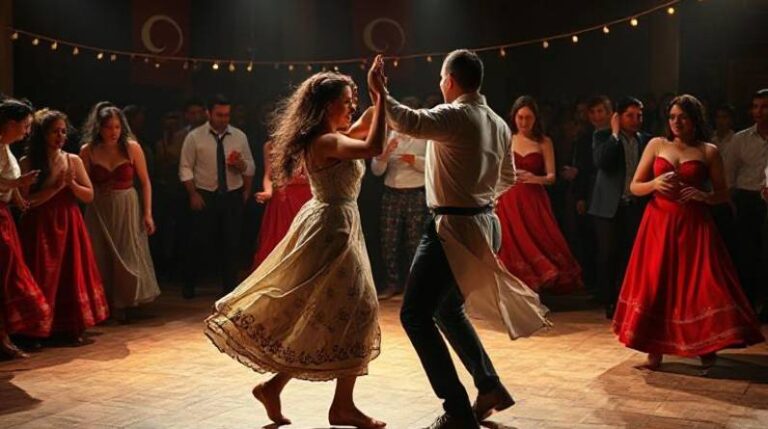In an age marked by speed, disconnection, and digital overstimulation, the Turkish concept of Evırı emerges as a powerful antidote—an untranslatable feeling rooted in togetherness, cultural belonging, and the quiet dignity of shared moments. This term, although elusive in formal dictionaries, encapsulates the soul of Turkish communal life—from bustling markets and family feasts to the calm of tea shared on a veranda.
But what exactly is Evırı, and why does it matter today more than ever?
Understanding the Meaning of Evırı
A Word Beyond Words
Evırı (pronounced eh-vuh-ruh) is not a term you’ll often find in textbooks. It lives primarily in spoken Turkish, especially in rural Anatolia and culturally rich family circles. Though it resists direct translation, Evırı can be described as:
- The emotional atmosphere of community gatherings
- A shared warmth that binds people during celebrations or hardships
- The cultural undercurrent in storytelling, music, and ritual
At its core, Evırı is about human presence with purpose—where individuals feel seen, connected, and part of something greater than themselves.
Origins: From Village Fields to Urban Apartments
Evırı has its roots in rural Turkey, where generations lived, worked, and celebrated side by side. Seasonal farming, wedding feasts, and storytelling under stars gave birth to this collective sentiment. Though less formal than concepts like misafirperverlik (hospitality), Evırı runs deeper—it is not about hosting, but about belonging.
Historical Touchstones of Evırı
| Era | Cultural Context | Role of Evırı |
| Pre-20th Century | Farming villages & nomadic tribes | Strengthened communal labor and oral traditions |
| Mid-20th Century | Rapid urbanization | Preserved rural customs in urban family enclaves |
| 21st Century | Global migration & diaspora | Evırı became a nostalgic link to homeland |
Evırı in Everyday Life
1. Tea as a Social Glue
In Turkey, tea is more than a drink—it’s an invitation to pause and connect. Whether offered in a carpet shop in Istanbul or at a kitchen table in Gaziantep, a glass of black tea in a tulip-shaped cup is a symbol of Evırı.
Example: Two strangers discussing football over tea at a bus station find in each other a moment of shared humanity—this is Evırı in motion.
2. The Power of the Kitchen
Turkish cuisine thrives on co-preparation and co-consumption. Recipes are passed down orally and often involve entire families in their preparation. The act of kneading dough with your aunt while your cousin roasts eggplants over an open fire creates not just food, but memory and unity.
3. Music, Dance, and Storytelling
Instruments like the saz and dances like the halay or hora are communal expressions of Evırı. These performances are rarely solo—they are designed to synchronize people physically and emotionally.
The Psychological Role of Evırı
Evırı operates as a social-emotional regulator, fostering mental health, community identity, and resilience.
Key Psychological Benefits:
- Belongingness: Acts as a buffer against alienation, especially in urban or diaspora settings
- Emotional Regulation: Provides a culturally safe space to express grief or joy
- Intergenerational Transmission: Preserves identity through oral and performative means
Statistic: A 2023 cultural study from Istanbul University found that 71% of respondents associated Evırı with “feeling emotionally anchored in uncertain times.”
Evırı and Technology: A New Digital Hearth
While Evırı is rooted in physical gathering, its spirit has adapted online. Turkish diaspora communities now recreate it in:
- WhatsApp recipe groups where elders guide youth
- Instagram lives of folk dancing classes
- YouTube channels archiving bedtime stories in Anatolian dialects
This modern form of Evırı shows how cultural concepts can evolve without eroding.
Comparative Table: Evırı and Similar Global Concepts
| Culture | Concept | Shared Values with Evırı |
| Danish | Hygge | Togetherness, warmth, simple joy |
| Japanese | Ibasho | A place of emotional belonging |
| Indian | Adda | Informal, meaningful group conversation |
| Arabic | Tarab | Communal musical ecstasy |
These concepts confirm that Evırı is both deeply Turkish and universally human.
Evırı as Cultural Antidote in the Age of Isolation
What makes Evırı unique in today’s world is its insistence on presence over performance. In a digital landscape dominated by metrics—likes, follows, clicks—Evırı reminds us of the power of presence without surveillance.
Where Western cultures may prioritize individualism or curated experiences, Evırı offers organic, unmonetized connection. There’s no RSVP, no camera needed, no agenda—only the unspoken social contract of being together.
How to Cultivate Evırı in Your Own Life (Even If You’re Not Turkish)
- Share a Meal Without Distraction
Cook or eat with others with no phones in sight. Let conversation flow naturally. - Host Without Pretense
Invite someone for tea or coffee without a special reason. Let the moment shape itself. - Celebrate Ordinary Moments
Turn regular family rituals—like laundry folding or bedtime stories—into communal acts. - Create Intergenerational Spaces
Include both elders and children in gatherings or discussions to transfer culture and warmth.
Common Misunderstandings About Evırı
| Misconception | Reality |
| “Evırı is just hospitality” | It’s deeper—it’s about shared emotional space, not just hosting |
| “You have to be Turkish to feel it” | Anyone can experience it through openness and presence |
| “Evırı can’t exist online” | It now thrives in digital family groups and diaspora storytelling |
Conclusion: Why the World Needs Evırı
In a time of hyper-connectivity yet deep isolation, Evırı stands as a gentle rebellion. It calls us back to the rhythms of shared life—of dancing not alone but together, of eating not to consume but to commune, of speaking not to be heard but to connect.
Whether you’re in a Turkish village or a New York apartment, Evırı isn’t a place—it’s a feeling. And it’s one the world could use more of.
Frequently Asked Questions (FAQs)
Q1: What does “Evırı” mean in Turkish culture?
A: Evırı refers to a culturally significant sense of unity, emotional warmth, and belonging shared during communal gatherings, meals, music, and rituals in Turkish life.
Q2: Is Evırı a commonly used word in Turkey?
A: While not formal or widely printed in dictionaries, Evırı is regionally known and emotionally resonant, especially in Anatolian communities and among the Turkish diaspora.
Q3: How is Evırı different from hospitality (misafirperverlik)?
A: Hospitality is part of Evırı, but Evırı encompasses deeper emotional connection and communal presence—it’s not just about hosting, but about truly belonging together.
Q4: Can non-Turks experience Evırı?
A: Absolutely. Anyone who engages in heartfelt, community-driven experiences—especially in Turkish social settings—can feel the spirit of Evırı.
Q5: Has Evırı evolved in modern life?
A: Yes. While rooted in tradition, Evırı has adapted to modern forms such as online recipe sharing, family WhatsApp groups, and digital diaspora events, maintaining its essence of connection.
For more insightful articles and the latest updates, keep visiting Hacoo.

